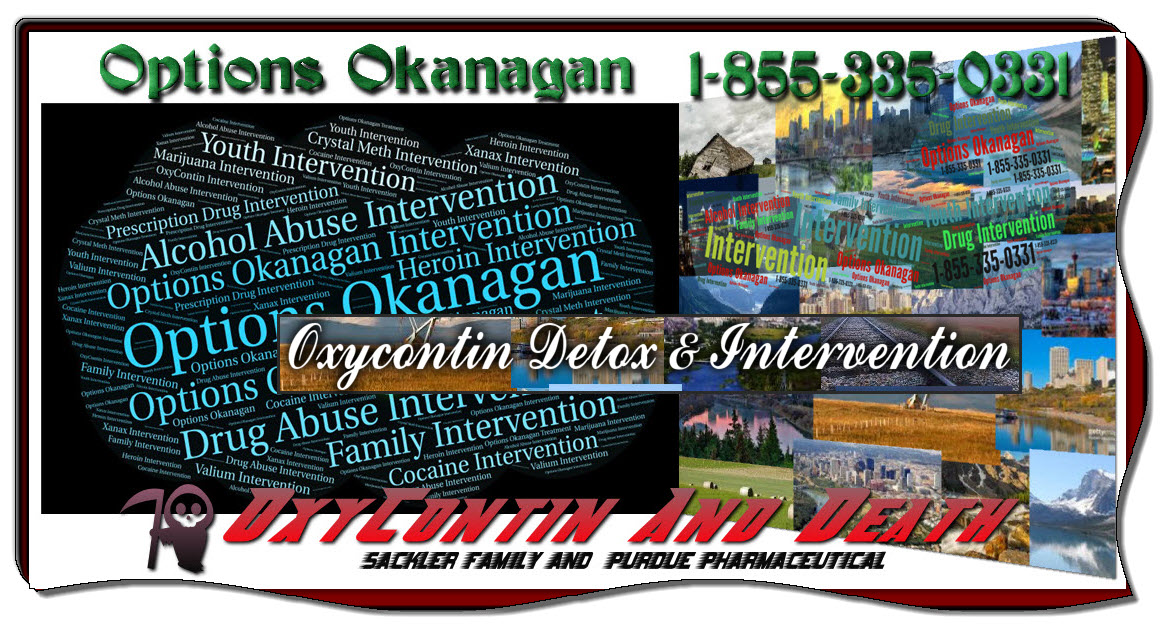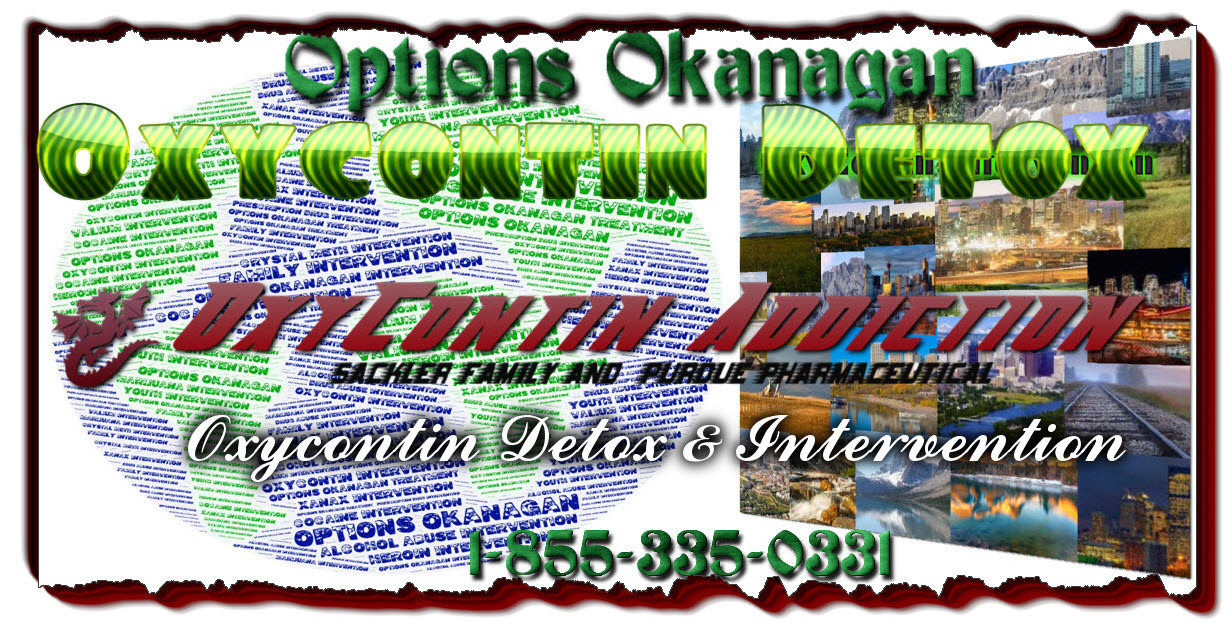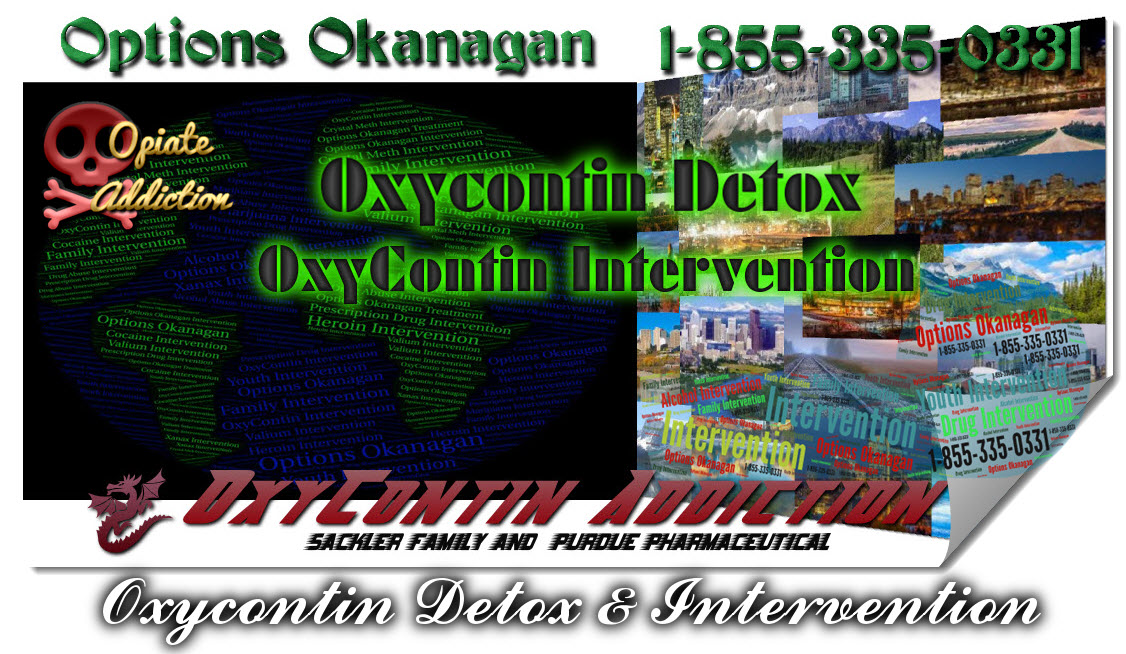Learning about OxyContin Detox – Oxycontin opiate and prescription drug intervention in British Columbia and Alberta – Options Okanagan Treatment Centers in Kelowna, British Columbia treating oxycontin, drug, opiate, fentanyl, heroin and alcohol addiction and recovery.
Oxycontin Detox & Intervention In Alberta And BC
About OxyContin Detox
OxyContin was first publicly released back in 1996. This powerful painkiller was created to give patients a helping hand in the management of otherwise overwhelming chronic pain. OxyContin is actually a timed-release variant of oxycodone, and it did help many subdue their pain, but it also activated a number of pleasure receptors in people’s brains using medical-grade opiates. As an unfortunate consequence, OxyContin wound up becoming just as abusable and even addictive as other drugs, like heroin and morphine. Detox from OxyContin is never fun, but anyone feeling like they might be addicted to this particular medication need to get medical attention as quickly as they can.
The Impact OxyContin Has On The Human Body
When it’s used properly, OxyContin is one of the few painkillers that actually help anyone who has chronic pain and overwhelming discomfort. Doctors frequently prescribe it to patients who are suffering substantial medical issues, like neurological degeneration and the later stages of cancer. It’s recommended that patients only use this particular medication for limited stretches of time given what powerful impact it can have on the human physique. Within just a few weeks of use, many patients start developing tolerance to this drug; they feel like they need more of it in order to get the same effects as before. The combination of that the tolerance that can get built up, as well as many feelings of euphoria that happen, make OxyContin very addictive. Current estimates indicate that 10 percent or more of both Americans and Canadians are going to use prescription opiates for reasons that aren’t medical at some point in their lives. A number of these addictions have roots in actual prescriptions for these medications, but others transition from illegal opiates like heroin and start using OxyContin since it’s easier to get.
OxyContin Withdrawal And Detox
Another reason making OxyContin very dangerous is how severe the symptoms of withdrawal are. Any time a person winds up forming a tolerance to a foreign substance but keeps using them a lot, then they’re more than likely going to experience the symptoms of withdrawal when they aren’t exposed to that substance anymore. This is particularly true for opiates, since the body can actually ‘forget’ just how to produce specific hormones and chemicals unless OxyContin or another drug is in the system at the time. When a person stops using OxyContin, it can actually put their body into a state of actual shock.
If a period of withdrawal is carried out properly with the intention of breaking an addiction, it’s known as detox, and it’s something that only a medical professional should oversee. What actually happens during a detox will be determined by how healthy the individual is and how severe the addiction is. Going ‘cold turkey’ is really hard, and without proper supervision, it can even be risky and dangerous. Initial symptoms typically make themselves apparent in just a few hours of not using any longer. A detox from OxyContin varies, but typically ranges from as short as 4 days up to 12 days in length. Common side effects include irritability, vomiting, nausea, and insomnia. Many would describe it as having a bad flu or really terrible cold, coupled with psychological and emotional issues.
Opiate Addiction Getting Help
The odds of breaking an opiate addiction on your own are not good. Rather than just getting rid of your drugs and just hoping things work out, addicts need to have a proper support system in place in order to manifest long-term results. Detox is something that a medical professional should always oversee. However, addicts might also want to think about using an inpatient center once the physical effects of their detox start wearing off. Inpatient treatment programs can run from one to three months and address a number of causes behind the underlying addiction rather than only treating just the side effects.
Options Okanagan Opiate and Alcohol Treatment Centers in Kelowna, Salmon Arm and Vancouver, British Columbia – Men and Women are recovering and healing from Alcohol and Drug Abuse at our treatment center here in the Okanagan right now.
Our unique and distinctive Opiate Drug and Alcohol treatment program allows men and women to come in from Calgary as well as Edmonton as we offer airport pickup.
Numerous clients come to us from Vancouver, Calgary and Edmonton and other locations in Alberta and even other provinces for Opiate addiction treatment, heroin drug treatment, many other drug and alcohol addictions for rehabilitation because of the uniqueness of our treatment center.
Our Opiate Treatment Location:
Options Okanagan OxyContin and Opiate Treatment Center
551 Sherrydale Crescent, Kelowna, British Columbia, V1V 2E6
Toll Free Phone Number : 1-855-335-0331



